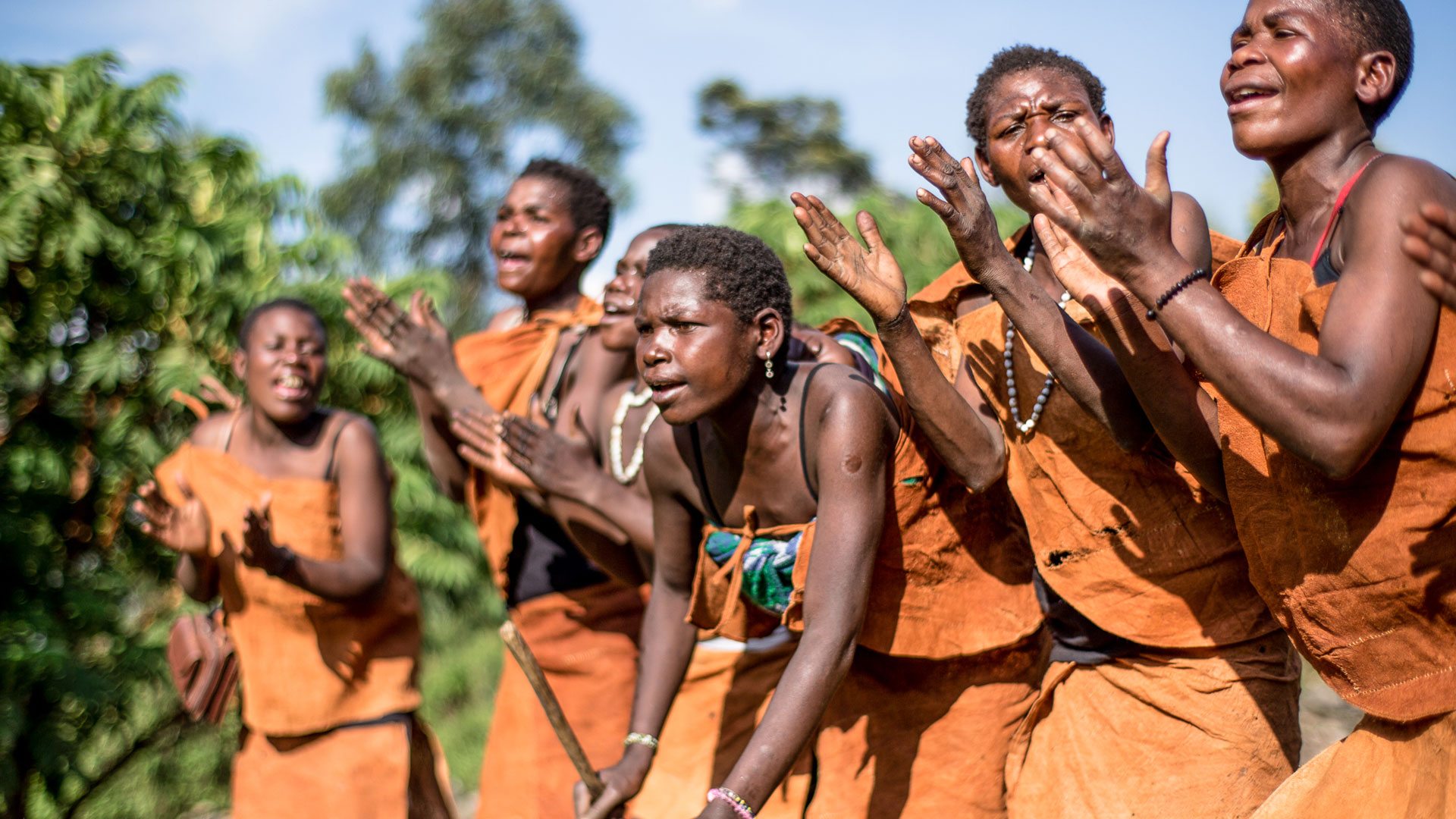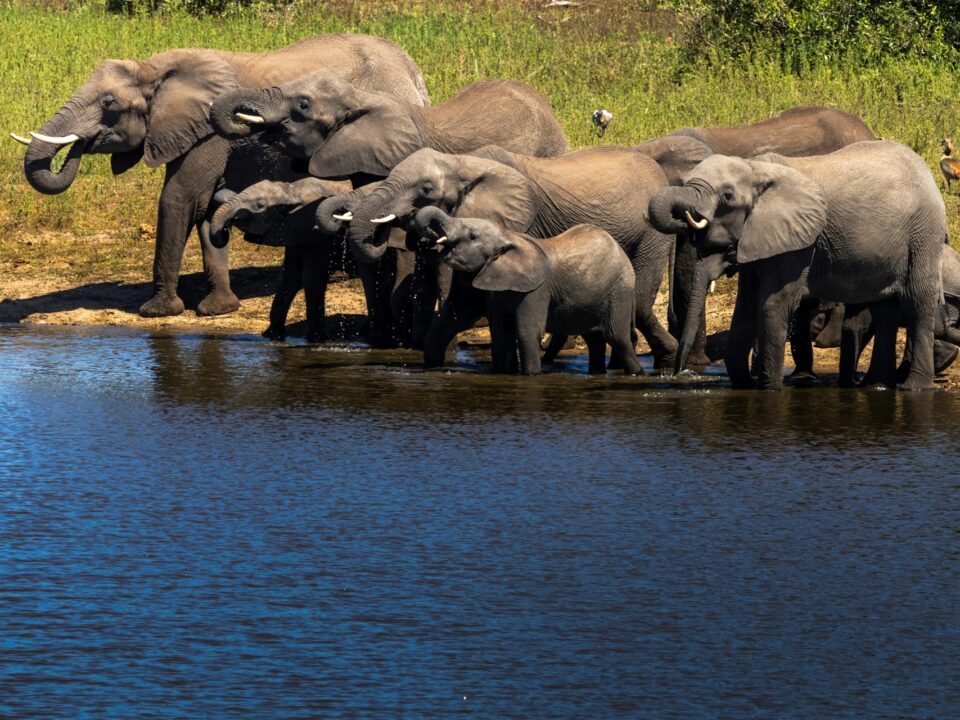The Batwa People of Uganda

The Batwa people, also known as the “Pygmies,” are one of the most ancient and unique communities in East Africa. For thousands of years, they lived in harmony with nature, thriving as hunter-gatherers in the dense, mist-covered jungles of Bwindi Impenetrable Forest in southwestern Uganda. The Batwa, often referred to as the "first people of the forest," have a deep, spiritual connection with the rainforest, and their rich culture and traditional knowledge of the land are both fascinating and unique.
This article will explore the Batwa people’s culture, their way of life in the forest, their ancestral survival skills, and their displacement from Bwindi. We’ll also look at how you can learn about and interact with this incredible culture today.
Who are the Batwa People?
The Batwa are an indigenous group that originally inhabited the mountainous forests of southwestern Uganda, Rwanda, Burundi, and parts of the Democratic Republic of Congo. Historically, they are considered to be the first inhabitants of the Great Lakes region, with a history that dates back more than 4,000 years. The Batwa are often categorized as a Pygmy people due to their short stature, a physical trait common among several rainforest-dwelling groups in Africa.
For centuries, the Batwa lived as hunter-gatherers in Bwindi Impenetrable Forest, depending entirely on the forest for their food, shelter, medicine, and survival. The forest was their home, and they had a deep understanding of its flora and fauna. Their relationship with the environment was symbiotic, taking only what they needed and preserving the ecosystem for future generations.
Batwa Culture and Traditions
The Batwa people have a rich and distinct culture, characterized by their intimate relationship with the forest. Here are some key aspects of their culture:
1. Hunter-Gatherer Lifestyle
- The Batwa were nomadic hunter-gatherers, meaning they moved through the forest following the seasonal availability of food.
- They hunted small game such as antelope, bush pigs, and monkeys using traditional bows and arrows.
- They also gathered wild fruits, honey, roots, and medicinal plants. Honey was particularly prized, and the Batwa are known for their incredible skill at climbing tall trees to access beehives.
2. Forest as a Pharmacy
- The Batwa had an encyclopedic knowledge of medicinal plants and herbs. For every ailment, from wounds to fevers, they knew which plants could offer healing properties.
- This knowledge was passed down orally through generations and was essential for their survival without modern medicine.
3. Spiritual Connection to the Forest
- The Batwa have a strong spiritual bond with the forest, believing that spirits of their ancestors reside there and protect them.
- The Batwa traditionally held ceremonies in caves and forest clearings, offering prayers and rituals to appease these spirits and ensure the forest’s bounty.
- They also believed in various forest deities who controlled aspects like rain, fertility, and hunting success.
4. Traditional Dwellings
- The Batwa lived in temporary, grass-thatched huts built from materials collected in the forest. These homes were simple and could be moved easily as the Batwa traveled through the forest.
- The huts provided protection from the rain and shelter at night, while the forest itself offered protection from larger predators.
5. Music and Dance
- The Batwa are renowned for their music and dance, which play an integral role in their cultural expression.
- Music was used in rituals, during celebrations, and as a way to communicate stories about the forest and their ancestors.
- Their traditional instruments include drums, flutes, and bows (used not only for hunting but also for producing musical sounds).
6. Oral Tradition and Storytelling
- Storytelling is at the heart of Batwa culture. The Batwa passed down their history, beliefs, and knowledge through oral tradition, with elders recounting tales about the forest and life lessons.
- Many of their stories involve animals and nature, illustrating the importance of the forest in their worldview.

The Displacement of the Batwa from Bwindi Impenetrable Forest
In 1991, the Batwa were displaced from their ancestral home when Bwindi Impenetrable Forest was declared a national park and a UNESCO World Heritage Site. The creation of the park was essential for the protection of endangered species, particularly the mountain gorilla, but it left the Batwa people landless and without access to the resources they had relied on for millennia.
This displacement drastically affected their way of life:
- Loss of livelihood: The Batwa could no longer hunt, gather food, or use the medicinal plants they had once depended on. Many of them faced poverty and food insecurity as they struggled to adapt to a sedentary lifestyle.
- Cultural erosion: With the forced separation from their traditional way of life, the Batwa lost much of their connection to the forest, which had been the cornerstone of their culture for centuries.
Despite this, efforts have been made to support the Batwa community. Organizations like the Batwa Development Program have worked to provide them with land, education, and healthcare, as well as to preserve their culture through cultural tourism initiatives.
The Batwa Cultural Experience: A Unique Opportunity to Learn
Today, visitors to the Bwindi region can take part in a Batwa Cultural Experience, where they can interact with the Batwa people and learn about their traditional way of life. These experiences offer tourists a chance to:
-
Learn traditional survival skills: Visitors can see how the Batwa once hunted using bows and arrows, how they made fire using friction, and how they harvested honey from the forest’s tall trees.
-
Medicinal plant walks: A guided walk through the forest allows visitors to learn about the plants the Batwa used for healing and nourishment. Batwa guides will explain the significance of each plant and its traditional use.
-
Storytelling and dance performances: The Batwa share their stories and perform their traditional dances, giving visitors insight into the rich oral tradition that has kept their culture alive for centuries.
-
Visit to traditional Batwa homes: Some tours offer a chance to visit reconstructions of Batwa huts, demonstrating how they lived in the forest and maintained their nomadic lifestyle.
These experiences are not just a fascinating glimpse into the past; they are a way of helping the Batwa preserve their culture while earning a livelihood through tourism.
The Batwa’s Struggles and Modern Life
Although some Batwa have successfully transitioned into modern Ugandan society, many still face significant challenges, including:
-
Landlessness: Despite some resettlement efforts, many Batwa still do not own land and are dependent on agriculture for their survival, which is a drastic change from their forest-based lifestyle.
-
Poverty and discrimination: The Batwa often live on the margins of society, facing discrimination from other communities and struggling to access basic services such as healthcare and education.
-
Preservation of culture: With younger generations growing up outside of the forest, the Batwa’s traditional knowledge is at risk of being lost. Many young Batwa have never lived in the forest or practiced the skills their ancestors used to survive.
Efforts from non-governmental organizations and the Ugandan government are ongoing to improve the Batwa’s quality of life while preserving their unique culture.
Why the Batwa Story Matters
The story of the Batwa people is important because it highlights the delicate balance between conservation and human rights. While the creation of Bwindi Impenetrable National Park was essential for protecting biodiversity, it also displaced a community that had lived there sustainably for generations.
Visiting the Batwa and participating in cultural experiences not only enriches visitors but also helps support the Batwa community financially and ensures that their culture is not lost to history.
Frequently Asked Questions
FAQs
The Batwa people’s story is one of resilience, adaptation, and a deep-rooted connection to nature. As the original inhabitants of Bwindi Impenetrable Forest, they offer a unique perspective on conservation and coexistence with the environment. While their displacement has brought about significant challenges, the Batwa continue to share their culture and knowledge with the world, ensuring that their legacy endures. By engaging with the Batwa through cultural tourism, visitors not only gain an unforgettable experience but also help sustain a community fighting to preserve its rich heritage.


